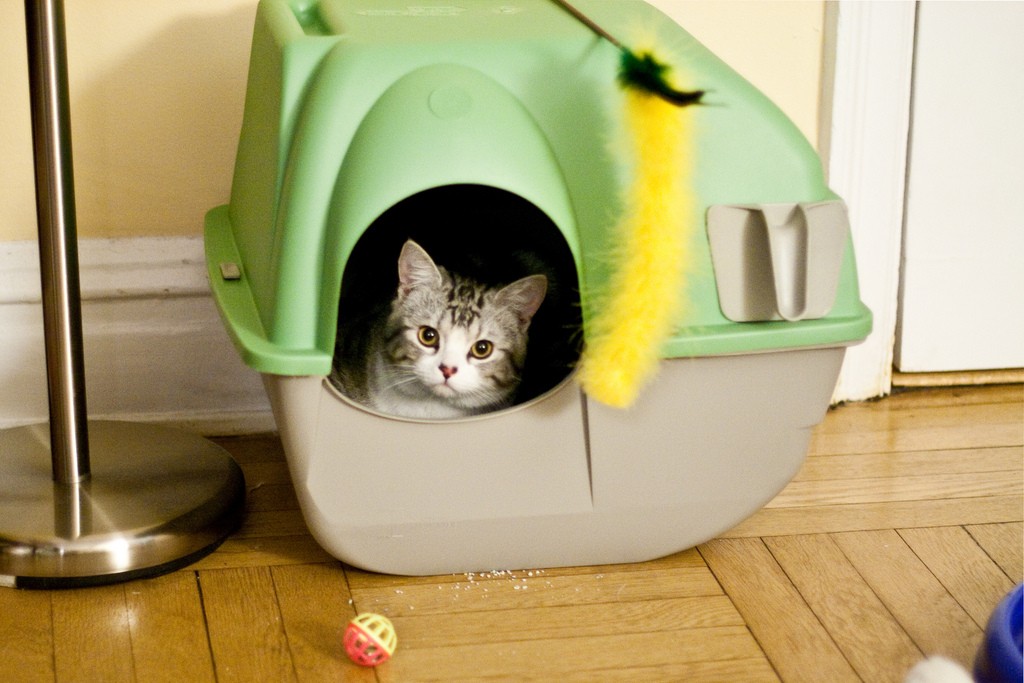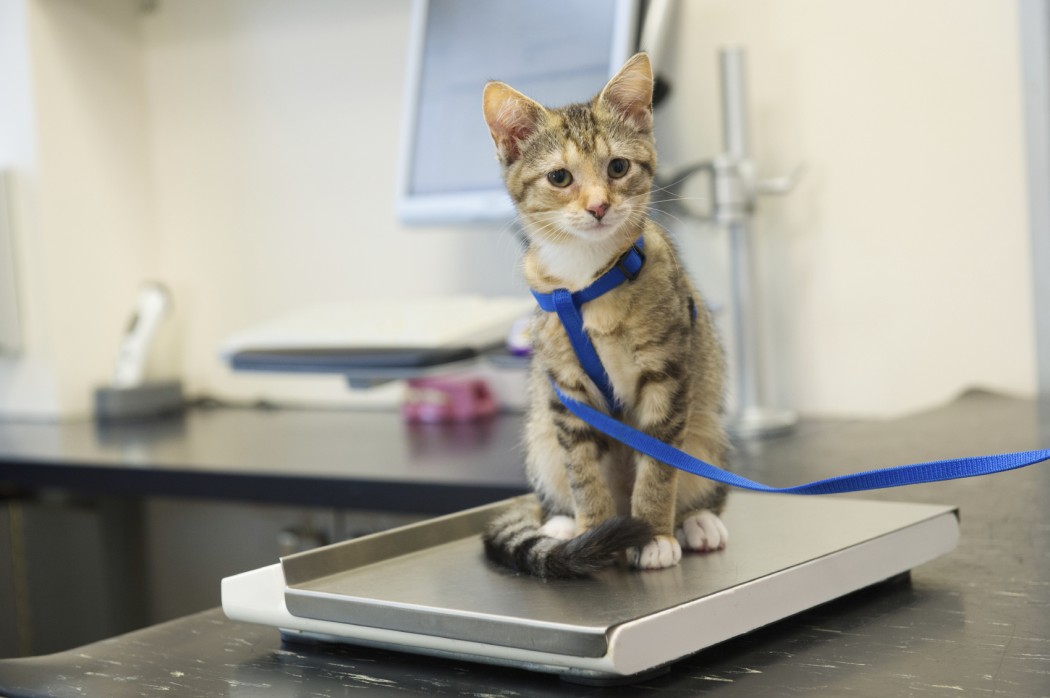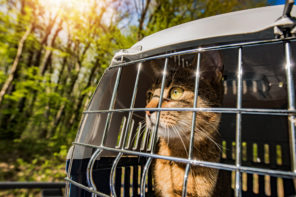Virtually every cat owner has had a moment where they’ve wondered, “Does my pet need to see a veterinarian?” Often, we turn to the Internet to answer this question, Googling symptoms and attempting to diagnose the problem. However, as a general rule, it’s always best to call the vet to make sure your cat is healthy — and to give yourself some peace of mind.
Still, it’s a good idea to be aware of what symptoms to look out for whether you’re at home or on the trail because a sick or injured adventure cat is a cat that should most definitely not be adventuring. Here are eight signs that it may be time to see a veterinarian.
1. Your cat is acting differently.
Cats instinctively hide their pain, a survival mechanism that can keep them safe in the wild, but can make it difficult for well-meaning human caregivers to figure out what’s wrong. Often, when a cat isn’t feeling well, he or she will hide or avoid interaction, become lethargic, neglect grooming or simply not act like his or her usual self. A cat that isn’t acting normally is a cat that needs a checkup.

Photo: woodleywonderworks/flickr
2. Your cat’s appetite has changed.
Typically, cats will refuse to eat when they don’t feel well; however, some illnesses may increase a cat’s appetite. Learn more about feline appetite changes on PetMD. A cat’s thirst can also be affected when a cat isn’t in the best of health. Suddenly drinking a lot of water may be indicative of diabetes or kidney disease.
3. Your cat’s gums are discolored.
The color of a cat’s gums can reveal a lot about his or her health. A healthy cat’s gums will be pink, and if you press them with a finger, the color will return to that same pink hue within seconds of lifting your finger. Different colored gums can indicate a variety of problems. For example, bluish gums may mean there’s a life-threatening lack of oxygen, and yellow gums could be a sign of liver disease.
4. Your cat is walking abnormally.
If your cat won’t put weigh on a limb, is favoring a leg or simply seems to be moving strangely, he or she may have arthritis, an infection, a fracture or another injury.
5. Your cat’s litter box habits have changed.
If your cat is making frequent trips to the litter box or exhibiting signs of pain in the litter box by straining or crying, he or she may have a urinary tract infection or even a blockage, a very serious condition. Urinating or defecating outside the litter box could indicate kidney stones or feline interstitial cystitis, or your cat may simply have arthritis and find climbing into the box painful.
Keep an eye on your cat’s litter box to ensure that he or she is urinating and defecating regularly and normally. Cats that aren’t using their box, cats with blood in their urine or stool, and cats with diarrhea accompanied by other signs of illness, should see a vet.

Photo: Tom Thai/flickr
6. Your cat is vomiting.
It’s normal for cats to vomit on occasion. “Usually they have eaten something disagreeable, eaten too much or too fast, are overly excited or nervous, have hairballs, or their body is reacting to any of a number of other non-serious conditions,” write veterinarians Drs. Foster and Smith.
However, if a cat is vomiting repeatedly, if there’s blood in the vomit, or if the vomiting is accompanied by lethargy, your pet should see a veterinarian as soon as possible.
7. Your cat is coughing.
Prolonged coughing that lasts more than a day could be something more serious, such as asthma, allergies, lung disease or heart disease. If your cat is having difficulty breathing or has blue-colored gums, see a vet immediately. Learn more about coughing in cats.
8. You keep wondering if your cat needs to see a vet.
Trust your instincts. No one knows your kitty better than you, so if something seems off, take your cat to the vet. You’ll be glad you did.
To learn more about determining if your cat is sick, check out the Humane Society’s seven-step at-home exam.




